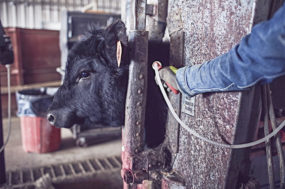Even though ranching mostly deals with cattle and land, dealing with people – relatives, neighbors, the government – is unavoidable and can be a lot more complicated. During Texas A&M’s virtual Beef Cattle Short Course, three ag lawyers created a presentation to help ranchers get a handle on some common legal issues. The presenters, Tiffany Lashmet, Jim Bradbury and Stephanie Fryer, covered some of the intricacies surrounding landowner liability protection, fence law and succession planning.
5 ways to get protected from liability
Having someone come on the ranch and get hurt is a big worry when a lawsuit could be on the horizon. Lashmet discussed five ways to protect yourself and your operation from liability. She said having as many of these five defenses prepared would make a big difference when it’s time to use them.
1. Get liability insurance. Every landowner and ag tenant needs it. No exceptions. Period. “Just because you may not be liable to someone for an injury, that doesn’t mean you’re not going to get sued,” she says. “The bottom line is, in America, anybody can sue anybody, and you may find yourself a defendant in a lawsuit simply by virtue of owning the property where the accident happened.”
Lashmet says insurance provides two benefits. An insurance policy includes the agreement to pay up to a certain amount for settlements or any damages that occur in the case of an accident. Liability insurance also includes a “duty to defend,” meaning the insurance company will hire a defense attorney on their dime in the event an accident occurs, and the landowner is subject to a lawsuit. Since lawyers aren’t cheap, this makes liability insurance a huge benefit.
2. Identify dangerous conditions.Landowners or tenants have a certain responsibility or level of duty for the people that come on their property. For people like hunting groups or campers, landowners must warn them of dangerous conditions they might not know about (i.e., an old well).
3. Obtain written liability waivers. These are meant for people who come to the ranch for recreational or educational purposes, like hunters or outdoors groups. Waivers can be complicated, so using the help of an attorney is important to get the required language and phrasing to protect yourself from getting sued.
4. Consider the use of a business entity. Create a separate legal entity like a limited liability corporation, corporation or trust. In the event that you get sued, only the assets of the business entity can be targeted. Your personal assets remain safe. Keep in mind that you must jump through the right hoops to get (and keep) protection, and don’t forget that taxes and paperwork for a business entity are different. Carefully explore the pros and cons of creating a business entity before you take this step.
5. Ensure limited liability statutes apply. Some laws in place in Texas that can help protect landowners are the Recreational Use Statute, the Agritourism Act and the Farm Animal Liability Act. These policies are Texas-only, but if there are agritourism protection laws in your state, take advantage of any protections they offer.
Liability for livestock on the roadway
Bradbury discussed fencing laws, specifically liability for animals hit on the road. He says the first question to ask is whether the collision occurred in a “closed-range” or “open-range” area. Open-range means the animals have free run of the property, and the owner has no obligation to keep them fenced in. Closed-range means there is a legal obligation on a livestock owner to keep animals fenced in. Open-range laws vary from state to state, sometimes county by county. Find your state fence laws online.
Stock laws also vary from county to county. Contact your county clerk, county attorney or sheriff and ask about the local stock laws. Also, clarify which animals the law applies to – usually different laws are considered for large and small animals – and determine the obligation of the animal owner in the statue.
Liability for livestock on neighboring land
The next big question is “What do you do when your neighbor’s cows are on your land?”
In an open-range county, it is the landowners responsibility to keep unwelcome animals off their property. In a closed-range county, the neighbor is responsible to build an adequate fence to keep the animals on their side of the property.
Estate planning
Fryer laid out estate planning into three basic options:
1. No estate plan: After you die, the state determines who gets your property. This can be complicated if there is a second marriage or stepchildren involved.
2. Simple estate plan: You make a will that directs where and how your estate’s property will be transferred upon your death. You also include three documents:
- Power of attorney – You authorize someone to make financial/business decisions.
- Medical power of attorney: You authorize someone to make medical decisions.
- Advanced medical directive – Instruction to a physician to provide or withhold artificial life-sustaining procedures in the event of a terminal or irreversible condition.
3. Complex estate plan: Add to your simple estate plan. Include other features like trusts, business entity formation, life estate deeds and conservation easements.
Succession planning
Succession planning is determining how the farm or ranch will transfer to the next generation. Some important points to cover:
- Determine who will take over the farm: Who will own it? Who will manage it? Who will handle day-to-day operations?
- Develop how they will take over the farm: Train future generations while you are still around to do so. Introduce the next generation to the people you do business with – the banker, lawyer, CPA, crop insurance agent and seed dealer.
- Communicate: “This is your legacy; these are large assets and things that you care about. It’s your family and people you care about, and you want to take care of them,” Fryer said. It’s important to not “wait for the right time” because there isn’t one. “Don’t expect the kids to just work it out after you’re gone. In my experience, that never works. Communicating enhances the probability that your operation will be successful after you’re gone.”








